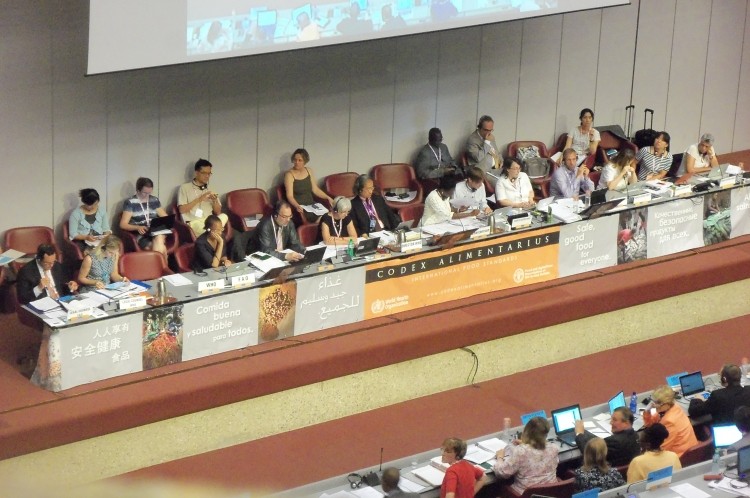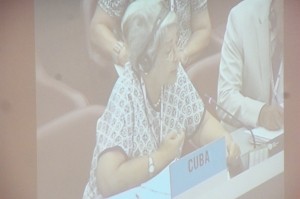DISPATCHES FROM CODEX ALIMENTARIUS, GENEVA
Consensus not reached by Codex on rBST standard

Recombinant bovine somatotropin (rBST) is a synthetic growth hormone used in lactating dairy cows to increase milk production.
Milk from rBST-treated cows contains higher levels of insulin-like growth factor (IGF-1), a growth hormone linked to an increased risk of cancer.
CAC said the standard will stay at step 8 of its standard adoption process and remain on the agenda at future meetings.
For, against and in the middle
Factors for its adoption included an updated (and third) Joint FAO/WHO Expert Committee on Food Additives (JEFCA) risk assessment, the role of Codex in standard-setting and the time spent debating the topic without data proving it would be a health risk for animals or humans.
However, those against adopting the standard said consensus could not be reached, cited the lack of current trade issues and gaps in the data concerning antimicrobial resistance (AMR).
Countries such as Togo, Benin, Mali, Somalia, Brazil, Costa Rica, Guatemala, Guinea, Pakistan, Tonga, Papua New Guinea, Dominican Republic, Mexico, Panama and Peru, Ecuador, Senegal, Djibouti and Guinea-Bissau expressed favour of adoption.
The USA said the standard should be adopted based on JEFCA’s findings, adding there was no data of human health risk coming from a bigger database than is usual when making decisions.
Georgia, Uganda, Norway, China, the Russian Federation, Switzerland, Kazakhstan, Morocco, Germany, Botswana, Belarus, Turkey, Italy, Denmark, Sweden and the UK expressed concerns about the standards adoption.
The European Union said the passing of time was not a good enough reason for adoption, adding it would be ‘unwise and unnecessary’ citing concerns about AMR and the use of veterinary drugs in healthy animals.
Flexibility or decision deadline?
When it became clear consensus was not going to be reached in the debate, which spread over two days, countries such as Australia, the Netherlands and Canada said there was no practical or trade reason to force adoption and it should be postponed until solid data was in either way.
The Commission said discontinuing work on the standard or adoption was not satisfactory to either side.
Concluding, it said it recognised the validity of JECFA risk assessments as the sound scientific basis for deliberations on rBST.
“Nevertheless the Commission as the international risk management body, recognises that consensus has not been reached on the adoption of the draft MRLs at its 38th session.
“…the Commission agrees to hold the draft MRLS for rBST at step 8 to provide further time to facilitate a possible consensus. The draft MRLs will continue to be on the agenda of the Commission and open to discussion.”
The conclusion was reached after countries such as Brazil and Cuba called for a strict deadline to move towards adoption instead of continued work on the subject which started in 1992.
Cuba expressed reservation as it did not give a specific deadline by which a decision would be taken as to the adoption of the draft MRLs for rbSTs.
JECFA performs risk assessments and provides advice to FAO, WHO and member countries.
Draft Codex standards for rbSTs have been held at the final step before adoption (step 8) since 1995.
The Codex Secretariat clarified there was no guidance on how to deal with draft standards held at Step 8.
JEFCA said rbSTs are registered in 21 countries.
The re-evaluation of rbSTs was in response to a request from the 35th Session of CAC to evaluate rbSTs on the basis of new data and information and to consider the need to revise or maintain the acceptable daily intake (ADI) and MRLs.
It included the effect on human health of increased use of antimicrobials to treat mastitis in cows.
The Committee at its 40th meeting established an ADI and MRLs “not specified” and re-affirmed this at its 50th meeting and as part of the reassessment last year.
McDonald's USA said earlier this year it would begin sourcing milk for some products from cows not treated with rBST.
General Mills, Danisco and Dannon had removed rBST from products in the past.










